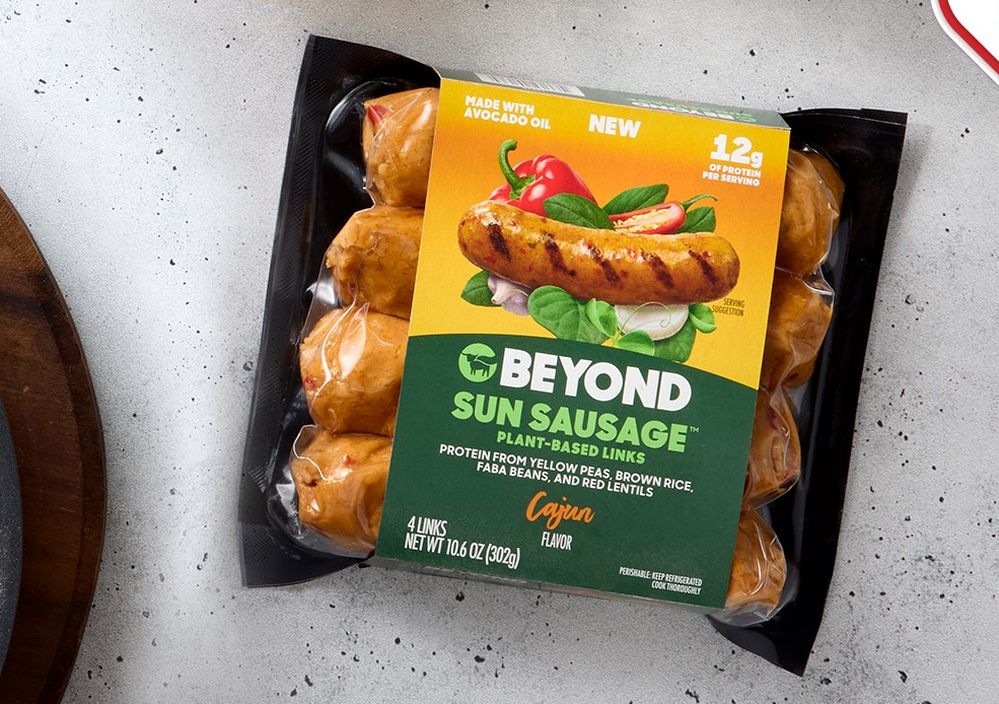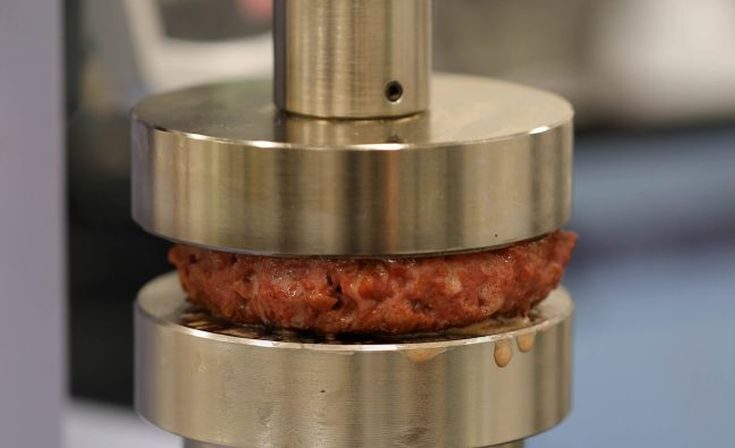Beyond Meat blamed weak demand for continued sales declines in the second quarter, although revenues exceeded expectations. Net losses fell from $54.4 million in Q1 to $34.5 million in Q2, while gross margins also moved from single digits into the mid-teens following aggressive cost-cutting.
“We are pleased to report a strong quarter of progress against our 2024 plan, a pivotal year on our path to sustainable operations and profitability,” said CEO Ethan Brown on the earnings call Wednesday afternoon.
“Key proof points include exceeding our Q2 revenue guidance; continued reduction in operating expenses and cash consumption; and our best quarterly gross margin since Q3 2021,” said Brown, who continued to blame a “sustained misinformation campaign championed by members of the incumbent animal protein industry” for “negatively impacting consumer perception of our products and the plant based meat industry as a whole.”
Q2 2024 by the numbers:
- Net revenue: -8.8% year over year (YoY) to $93.2 million, volumes -14%
- Net loss: $34.5 million
- Margins: Gross profit was $13.7 million with a gross profit margin of 14.7% vs 2.2% in the year-ago period and 4.9% in the previous quarter.
- US retail revenues: -7.5% YoY to $44.9 million
- US foodservice revenues: -18.9% YoY to $10.4 million
- International retail: -12.1% YoY to $17.6 million
- International foodservice: -2.5% YoY to $20.4 million
- Full year 2024 outlook: Net revenues of $320-340 million
- Balance sheet: As of June 29, 2024, Beyond Meat’s cash and cash equivalents balance was $158 million and total outstanding debt was $1.1 billion.
“To our surprise, they did not provide any new information on their effort to strengthen their liquidity position over the past 6 months. Our sense is that debt holders and investors want some assurances on the path to positive free cashflow when negotiating terms.” TD Cowen
‘We are trying to drive this business to cashflow positive operations’
Gross margins should continue to improve, said Brown, who has been reducing headcount and inventory and exiting co-manufacturing contracts over the past year. The company has also instituted price increases in the US to coincide with the rollout of its ‘Beyond IV’ platform and its new veggie-forward Beyond ‘sun’ sausages.
He added: “We scaled back on promotional trade discounts and together with the initial appearance of price increases on certain products in the US, this resulted in a 6.1% increase in our net revenue per pound compared to the year ago period.
“We expect to see further gross margin progress across the balance of the year reflecting the combined impact of more fully distributed pricing adjustments, continued moderation of promotional spending and ongoing COGS (cost of goods) improvements as we consolidate our network and continue on our lean management journey.”
CFO Lubi Kutua added: “We are trying to drive this business to cashflow positive operations as quickly as possible. We have not said that that will occur this year. As we’ve said on previous calls, we continue to work on bolstering our balance sheet.”

‘The main thing that destabilized this category has been the misperception around health’
Asked by Robert Moskow at TD Cowen about how US retailers are viewing the plant-based category, Brown explained: “Some are staying the course, some are shifting product placement between fresh and frozen and others are applying pressure on some of the lower performing players. So in that sense, I think we do benefit, as Beyond and Impossible emerge as the two main players.”
But he added: “The main thing that destabilized this category has been the misperception around health… so we are hammering away at the single most important issue in our view that is required to get to get the entire category rolling again. And early results we’re seeing with the [lower saturated fat] Beyond IV products [made with peas, brown rice, red lentils, faba beans and avocado oil] suggest that this is the right strategy.”
In Europe, meanwhile, Beyond Meat continues to move into new markets, with Beyond Steak, Beyond Smash, and Beyond Burger Jalapeno debuting in foodservice markets in the Netherlands and Beyond Steak launching in the retail market in Belgium, said Brown.
“We have also successfully reformulated our products to achieve refrigerated shelf-life requirements in Germany and other European markets… I’m very bullish on Germany. I think it’s a terrific plant-based market. It’s one of the top in the world and so I think you’ll see us be aggressive there.”

What’s next for Beyond Meat as the debt-laden firm looks to the future?
According to a recent report in the Wall Street Journal, Beyond has engaged with a group of bondholders to initiate discussions about a balance-sheet restructuring.
Beyond Meat had $158 million in cash and cash equivalents on its balance sheet and debts of $1.1 billion as of June 29, thanks to a $1 billion+ offering of convertible notes made in March 2021 that will mature in early 2027.
In a March 18 SEC filing, the company said it may issue and sell securities worth up to $250 million, although that doesn’t necessarily indicate a sale has begun or will occur.
One investment banking source told AgFunderNews in a recent interview: “The convertible notes were a cheap form of capital as they paid 0% interest in return for giving people the option of the upside to the equity. The problem is that when we get to 2027, the shares are going to be way below the conversion price, so Beyond Meat will have to pay up to the principal amount in cash, which it won’t be able to do, barring a miraculous turnaround.”
If Beyond Meat can’t afford to pay noteholders, “it will be in default and you’ve got a bankruptcy situation, which is already baked into the price these notes are trading at now,” he noted.
Another investment banking source told AgFunderNews that anything can happen in three years. “The market could improve, interest rates could fall, the funding environment could be better. If they can’t raise the money [to pay the debt], maybe they can restructure and work out some agreement with the noteholders where they reset the conversion price lower or start paying interest.
“But there’s nothing to gain by doing something now. The base case is they file Chapter 11 [bankruptcy protection] in 2027, and anything above that is upside.”

Plant-based meat in focus
Circana data crunched by 210 Analytics shows that US retail sales of meat alternatives fell 10.7% to $1.1 billion in the 52 weeks ending June 30, 2024 (total US, MULO, integrated fresh). Volume sales fell 13.3%.
For context, fresh meat department dollar sales were up 2.3% over the same period with volumes up 0.7%, while frozen processed meat sales were up 3.9% with units up 8.1%.
According to a recent report from nonprofit The Good Food Institute (GFI), lapsed consumers of plant-based meat (which carries a significant price premium) “tend to point to taste and price as reasons they stopped purchasing.” That said, such shoppers “remain very open to repurchasing if products more closely match the taste and texture of meat.”
While Beyond Meat continues to blame meat-industry-backed misinformation for “poisoning the plant-based well,” most consumers “do not appear to be aware of or concerned by these claims [about health and ultra-processing],” claimed the GFI.
The basic challenge facing plant-based meat companies is more straightforward, it said: “US adults are more likely to rate conventional meat as tasty, high-protein, affordable, good value, easy to find, and easy to cook.”





